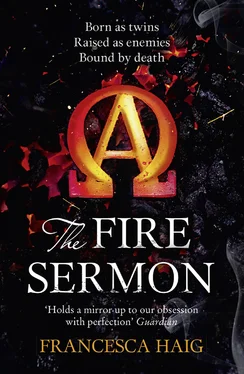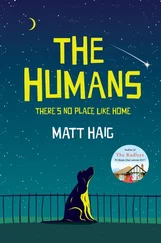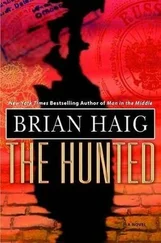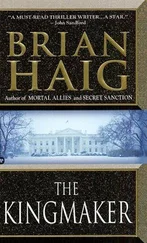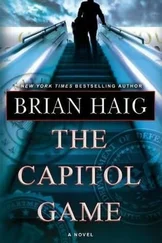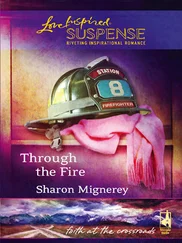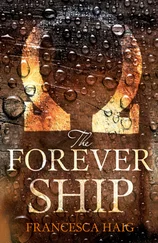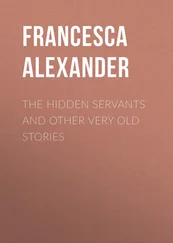Zach saw the empty jar that night, beside my bed. Neither of us said anything.
*
About a year later, gathering firewood by the river on a still afternoon, I made my mistake. I was walking just behind Zach when I sensed something: a part-glimpse of a vision, intruding between the real world and my sight. I dashed to catch up with him, knocked him out of the way before the branch had even begun to fall. It was an instinctive response, the kind I’d grown used to repressing. Later I would wonder whether it was fear for his safety that led to my lapse, or just exhaustion under the constant scrutiny. Either way, he was safe, sprawled beneath me on the path, by the time the massive bough creaked and fell, snagging and tearing off other branches on the way down, to land finally where Zach had stood earlier.
When his eyes met mine I was amazed at the relief in them.
‘It wouldn’t have done much damage,’ I said.
‘I know.’ He helped me up, brushed some leaves off the side of my dress.
‘I saw it.’ I was speaking too quickly. ‘Saw it starting to fall, I mean.’
‘You don’t need to explain,’ he said. ‘And I should thank you, for getting me out of the way.’ For the first time in years, he was smiling at me in the unguarded, wide-mouthed way that I remembered from our early childhood. I knew him too well to be glad.
He insisted on adding my own bundle of firewood to his, carrying the whole load all the way back to the village. ‘I owe you,’ he said.
In the weeks that followed we passed most of the time together, the same as always, but he was less rough in our games. He waited for me on the walk to the well. When we took the shortcut across the field, he called behind to warn me when he came across a patch of stinging nettles. My hair went unpulled, my possessions undisturbed.
Zach’s new knowledge allowed me some respite from his daily cruelties, but it wasn’t enough to declare us split. For that, he needed proof – years of impassioned but futile assertions on his part had taught him that. He waited a while for me to slip up again and reveal myself, but for nearly a whole year more I managed to hold my secret. The visions had grown stronger, but I’d trained myself not to react, not to cry out at the flashes of flame that punctuated my nights, or at the images of distant places that drifted into my waking thoughts. I spent more time alone, venturing far upstream, even as far as the deep gorge leading away from the river, where the abandoned silos were hidden. Zach no longer followed me when I went off by myself.
I never entered the silos, of course. All such remnants were taboo. Our broken world was scattered with these ruins, but it was against the law to enter them, just as it was forbidden to own any relics. I’d heard rumours that some desperate Omegas had been known to raid the wreckage, searching out usable fragments. But what would be left to salvage after all these centuries? The blast had levelled most cities. And even if there were anything salvageable in the taboo towns now, centuries later, who would dare to take it, knowing the penalty? More frightening than the law were the rumours of what those remnants could hold. The radiation, said to shelter like a nest of wasps in such relics. The contaminating presence of the past. If the Before was mentioned at all, it was in hushed voices, with a mixture of awe and disgust.
Zach and I used to dare each other to get close to the silos. Always braver than me, once he ran right up to the closest one and placed a hand on the curved concrete wall before running back to me, giddy with pride and fear. But these days I was always alone, and would sit for hours under a tree that overlooked the silos. The three huge, tubular buildings were more intact than many such ruins – they’d been shielded by the gorge that surrounded them, and by the fourth silo, which must have taken the brunt of the blast. It had collapsed entirely, leaving only its circular base. Twisted metal spars rose out of the dust like the grasping fingers of a world buried alive. But I was grateful for the silos, despite their ugliness – they guaranteed that nobody else would go near the place, so I could at least count on solitude. And unlike the walls of Haven, or the larger of the villages nearby, there were no Council posters flapping at the wind: Vigilance against Contamination from Omegas. Alpha Unity: Support Increased Tithes for Omegas. Since the drought years, everything seemed scarcer except for new Council posters.
I wondered, sometimes, whether I was drawn to the ruins because I recognised myself in them. We Omegas, in our brokenness, were like those taboo ruins: dangerous. Contaminating. Reminders of the blast and what it had wrought.
Although Zach no longer came with me to the silos, or on my other wanderings, I knew he was still observing me more intently than ever. When I came back from the silos, tired from the long walk, he’d smile at me in his watchful way, ask politely about my day. He knew where I’d been, but never told our parents, although they would have been furious. But he left me alone. He was like a snake, drawing back before the strike.
The first time he tried to expose me, he took my favourite doll, Scarlett, the one in the red dress that Mum had sewn. When Zach and I had first been given separate beds, I’d hung on to that doll for comfort at night. Even at twelve, I always slept with Scarlett under one arm, the coarse, plaited wool of her hair reassuringly scratchy against my skin. Then one morning she was gone.
When I asked about Scarlett at breakfast, Zach was buoyant with triumph. ‘It’s hidden, outside the village. I took it while Cass was asleep.’ He turned to our parents. ‘If she finds where I buried it, she has to be a seer. It’ll be proof.’ Our mother chided him, and put a hand on my shoulder, but all day I saw how my parents watched me even more carefully than usual.
I cried, as I had planned. Seeing the hopeful alertness of my parents made it easy. How keen they were to solve the riddle that Zach and I had become, even if it meant being rid of me. In the evening, I pulled from the small toybox an unfamiliar-looking doll with awkwardly chopped short hair and a simple white smock. That night, tucked under my left arm, Scarlett was returned from the toybox exile that I’d imposed on her a week before, when I’d swapped her red dress onto an unfavoured doll, and hacked off her long hair.
From then on Scarlett remained secret, in full view, on my bed. I never bothered to go to the lightning-charred willow downstream and dig up the doll in the red dress that Zach had buried there.
Downstairs, Mum and Dad were fighting again, the sound of their argument drifting up through the floorboards, insidious as smoke.
‘It’s more of a problem every day,’ Dad said.
Mum’s voice was quieter. ‘They’re not “a problem” – they’re our children.’
‘One of them is,’ he replied. A pot clattered loudly on the table. ‘The other one’s dangerous. Poison. We just don’t know which one.’
Zach hated to let me see him cry, but the dregs of the candle threw out enough light for me to see the slight shuddering of his back under the blanket. I slipped out from under my quilt. The floorboards creaked slightly as I took the two steps to the edge of Zach’s bed.
‘He doesn’t mean it,’ I whispered, putting a hand on his back. ‘He doesn’t mean to hurt you when he says things like that.’
He sat up, shrugging off my hand. I was surprised to see he didn’t even try to wipe away the tears. ‘I’m not hurt by him,’ he said. ‘What he says, it’s all true. You want to pat me on the back, comfort me, act like you’re the caring one? It’s not them hurting me. Not even the other kids, the ones who throw stones. See all of this?’ The sweep of his hand took in the sounds from the kitchen below, as well as his own tear-streaked face. ‘It’s all your fault. You’re the problem, Cass, not them. You’re the reason we’re stuck in this limbo.’
Читать дальше
